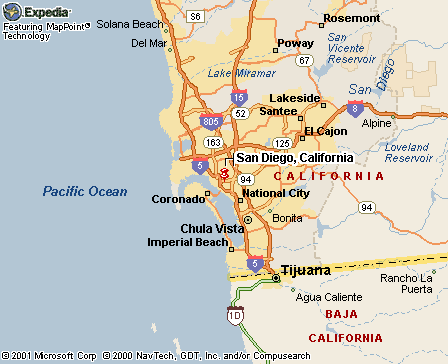|
|
Canku Ota |
|
|
(Many Paths) |
||
|
An Online Newsletter Celebrating Native America |
||
|
August 14, 2004 - Issue 119 |
||
|
|
||
|
Tribal Program Promotes College, Science |
||
|
by Adrienne A. Aguirre North Country Times |
||
|
credits: Eric Riggs, second from left, an associate professor at SDSU, helps these Native American students with an experiment in the San Luis Rey River at the La Jolla Indian Reservation. (photo by Don Boomer) |
|
For the last four years, a tribal-run program called Young Native Scholars, has been working to change that by exposing future leaders to college and careers in science. Over two summer weeks, Indian high school and undergraduate students live on, and study at, reservations and universities throughout the county. "It's important that we make a bridge between the university and the reservation," said Marc Chavez, program director and a graduate of UC San Diego. "You don't find many Native American people in the science profession. Our goal is to encourage them so they can help with very important things like water and land." On Thursday, 26 students from area reservations learned about water quality, supply and demand on the La Jolla Indian Reservation with San Diego State University professor Eric Riggs. Students rolled up their pants and waded through the San Luis Rey River to measure its volume and determine the number of gallons that flow through the reservation in a day. It's the kind of work, Riggs says, that usually goes to outsiders such as himself. "The tribal people like to hire tribal people. The problem is, there aren't many with the training," he said. "You go into a county environmental office in San Diego and you see a lot of people. You go to a tribal environmental office and they have three." But even with a science degree, Riggs said, it takes Indians to understand and appreciate their own land. "They have very clean standards. They're all about sustainability," he said. "Even if they have me, I'm not a Native American. I don't have the priorities that they were raised with." Heather Miranda, 16, of the Pala reservation, said the camp has taught her the importance of studying science for the future of her reservation. "I didn't know we need environmentalists. I just thought we needed more lawyers," she said. "We should take care of our land because this is our home." Heather said the program has also helped her believe in herself and her abilities. "There's not a lot of Native Americans that graduate high school. It's hard with all the racism and slander ... A lot of them give up," she said with tears in her eyes. "(The program has) motivated me to stay focused on education. It's made me feel proud to be a Native American." For more information, to make a donation or volunteer, call (858) 688-2624 or log on to www.NativeScholars.org. |
|
|
www.expedia.com |
|
|
||
|
|
||
| Canku Ota is a free Newsletter celebrating Native America, its traditions and accomplishments . We do not provide subscriber or visitor names to anyone. Some articles presented in Canku Ota may contain copyright material. We have received appropriate permissions for republishing any articles. Material appearing here is distributed without profit or monetary gain to those who have expressed an interest. This is in accordance with Title 17 U.S.C. Section 107. | ||
|
Canku Ota is a copyright © 2000, 2001, 2002, 2003, 2004 of Vicki Barry and Paul Barry. |
||
 |
 |
|
|
The "Canku Ota - A Newsletter Celebrating Native America" web site and its design is the |
||
|
Copyright © 1999, 2000, 2001, 2002, 2003, 2004 of Paul C. Barry. |
||
|
All Rights Reserved. |
||
 LA
JOLLA INDIAN RESERVATION ----- After more than a century of sovereignty,
less than 1 percent of American Indians are college-educated,
leaving tribes reliant on outsiders to help manage their lands
and natural resources.
LA
JOLLA INDIAN RESERVATION ----- After more than a century of sovereignty,
less than 1 percent of American Indians are college-educated,
leaving tribes reliant on outsiders to help manage their lands
and natural resources. 